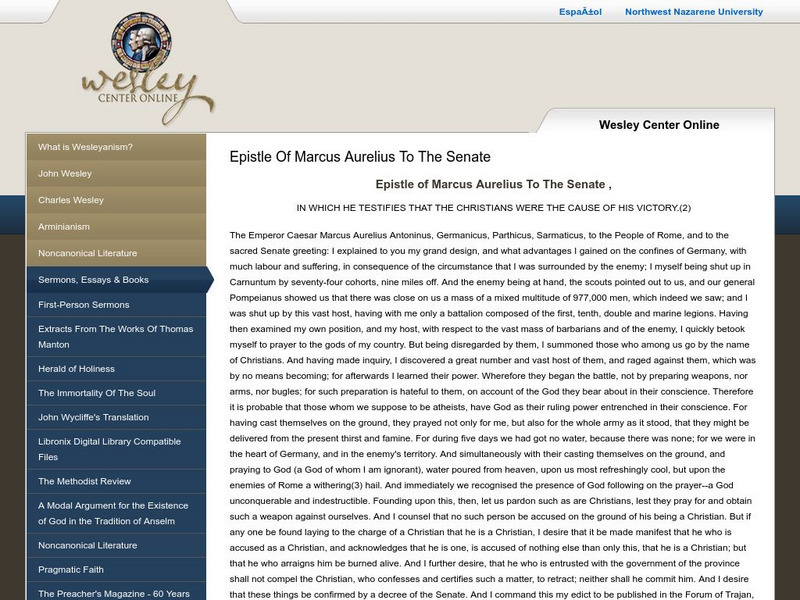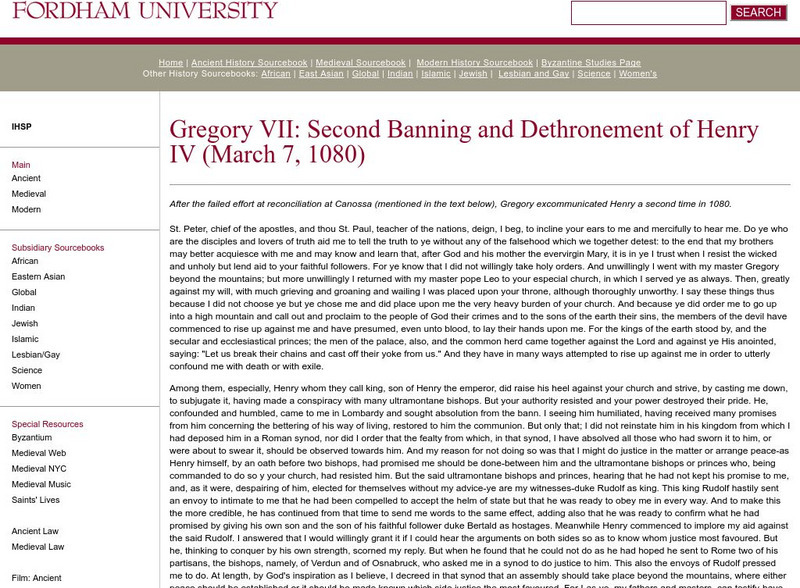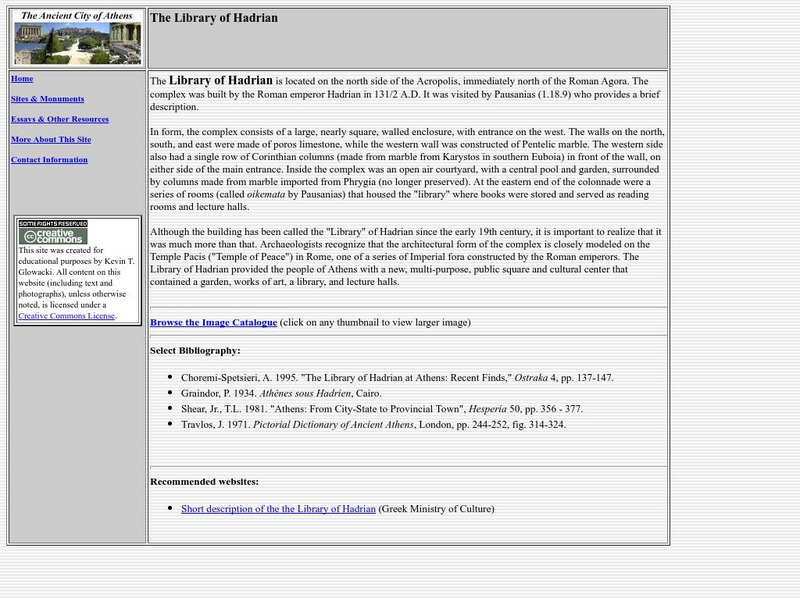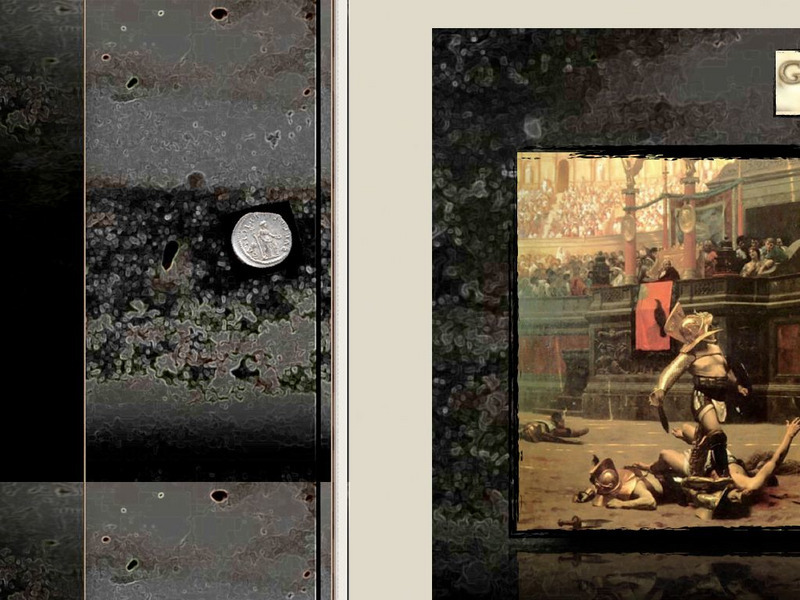Hi, what do you want to do?
Ducksters
Ducksters: Biography for Kids: Augustus
Kids learn about the biography of Caesar Augustus on this site. Learn about the first emperor of Rome, Octavian was the nephew of Julius Caesar.
Wikimedia
Wikipedia: Colosseum
Wikipedia offers detailed information on the Roman Colosseum, an amphitheater built in ancient Rome. Provides information on how it was built, what it was used for, and numerous images.
Read Works
Read Works: Ancient Rome and Byzantium the Birth of the Byzantine Empire
[Free Registration/Login Required] An informational text about beginning of the Byzantine empire. A question sheet is available to help students build skills in reading comprehension.
PBS
Pbs Frontline: The Martyrs
A very nice account which delves into the background of the persecutions of the early Christians under the Romans. The article provides specific historical details as to why and how Christians were being attacked.
Curated OER
Educational Technology Clearinghouse: Clip Art Etc: Roman Soldier
The armor worn by ancient Roman emperors and generals.
Curated OER
Educational Technology Clearinghouse: Clip Art Etc: A Roman Aqueduct
The Pont du Gard near Nimes (ancient Nemausus) in southern France. Built by the emperor Antoninus Pius. The bridge spans two hilltops nearly a thousand feet apart. It carries an aqueduct with three tiers of massive stone arches at a...
Vroma Project
V Roma Project: Caligula: Historical Background
This resource presents a biography of Gaius, known as Caligula, the third emperor of Rome. Written in timeline form, it gives literary and artistic evidence about his life. It stresses the lack of credible information about his life and...
Other
Wesley Center for Applied Theology: Epistle of Marcus Aurelius
A primary source document written by the great Emperor in which he gives thanks to the Christians for his winning a battle.
Internet History Sourcebooks Project
Fordham University: Medieval Sourcebook: First Banning of Henry Iv
Contains the original text of Gregory VII's first order to excommunicate Henry IV.
Internet History Sourcebooks Project
Fordham University: Medieval Sourcebook: Second Banning of Henry Iv
Contains the original text of Gregory VII's second order to excommunicate Henry IV.
Ducksters
Ducksters: Biography for Kids: Constantine the Great
On this site, students can learn about the biography of Constantine the Great from Ancient Rome. Study the first Christain Roman emperor by reading this biography.
Khan Academy
Khan Academy: Imperial Fora
A series of public spaces in Rome called fora were built by Roman emperors and contained monumental art and architecture. View examples and read descriptions of Imperial fora built by Julius Caesar and Augustus.
Khan Academy
Khan Academy: Portrait of Vespasian
This naturalistic portrait of the emperor Vespasian (reigned 69-79 C.E.) clearly shows the lined complexion of this battle-hardened emperor, and also the curious 'strained expression' which the Roman writer Suetonius said he had at all...
Khan Academy
Khan Academy: Forum and Markets of Trajan
Marcus Ulpius Traianus, now commonly referred to as Trajan, reigned as Romess emperor from 98 until 117 C.E. and had a reputation as a good emporer. A massive architectural complex-referred to as the Forum of Trajan was devoted to...
Other
The Stoa Consortium: Arch of Hadrian
The Arch of Hadrian was erected in honor of the Roman emperor Hadrian in the 2nd century A.D (and probably a little before 131/132 A.D. when we know Hadrian visited Athens). The arch was built over the line of an ancient road that led...
Internet History Sourcebooks Project
Fordham University: History Sourcebook: Germany Under Frederick Barbarossa
Fordham University provides a map of Germany under Frederick Barbarossa.
Other
The Stoa Consortium: The Library of Hadrian
The Library of Hadrian is located on the north side of the Acropolis, immediately north of the Roman Agora. The complex was built by the Roman emperor Hadrian in 131/2 A.D. It was visited by Pausanias (1.18.9) who provides a brief...
Other
Gladiator: The Real Story
This personal site is an account that examines the movie "Gladiator," and compares it to what actually happened in Roman history. There is information about Marcus Aurelius and his son, Commodus.
Curated OER
Educational Technology Clearinghouse: Clip Art Etc: Alexander Severus
Roman emperor, born in Arca, in 205; slain in 235 A. D. He was of Syrian parentage and originally named Alexius Bassianus, but was adopted by Emperor Heliogabalus and assumed the name by which he is known in history.
Curated OER
Educational Technology Clearinghouse: Clip Art Etc: Accubatio
The act of reclining at meals. The Greeks and Romans were accustomed, in later times, to recline at their meals; but this practice could not have been od great antiquity in Greece, since Homer always describes persons as sitting at their...
Curated OER
Bbc History: Ancient History: Romans: Roman Religions: Statue of Augustus
Portrait sculture of Augustus.
Curated OER
Educational Technology Clearinghouse: Clip Art Etc: Sella
Sella, the general term for a seat or chair of any description. Sella Curulis, the chair of state. Curulis is derived by the ancient writers from currus, but it more probably contains the same root as curia. The sella curulis is said to...
Curated OER
Educational Technology Clearinghouse: Clip Art Etc: Sella
Sella, the general term for a seat or chair of any description. Sella Curulis, the chair of state. Curulis is derived by the ancient writers from currus, but it more probably contains the same root as curia. The sella curulis is said to...
Other popular searches
- Roman Emperors
- Ancient Rome Emperors
- Roman Emperors Eating Grapes
- History Roman Emperors
- Emperors of Ancient Rome
- Roman Emperors Caligula




















